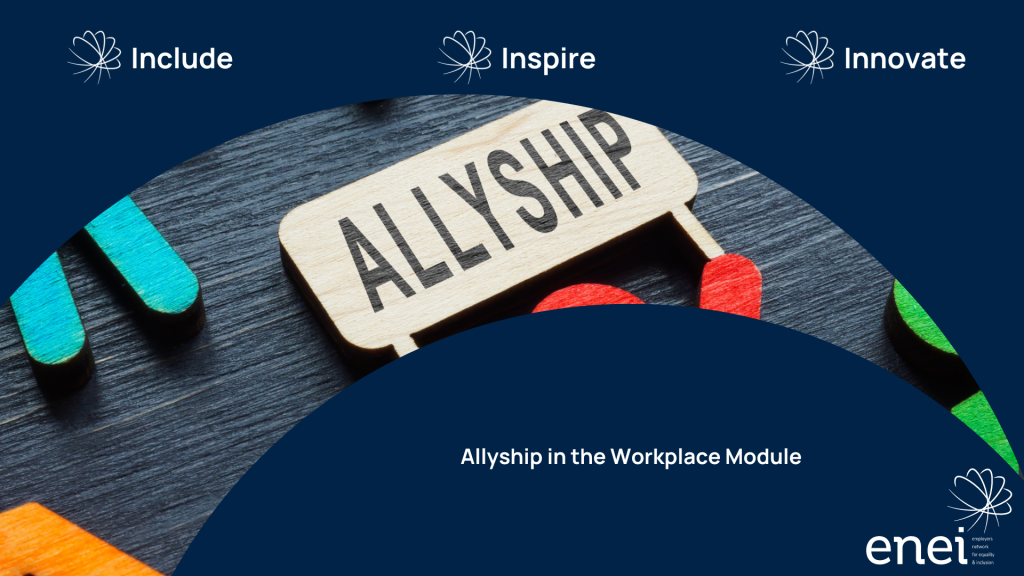

Allyship goes beyond passive support of marginalised groups, involving active solidarity, advocacy for inclusion, and equal treatment. Allies recognise systemic barriers and commit to dismantling them, even without directly experiencing them.
In the workplace, allyship manifests by amplifying marginalised voices, advocating for inclusive policies, and confronting biases. True allyship requires continuous education, self-reflection, and the courage to challenge the status quo, even when uncomfortable. Genuine allyship is not about seeking recognition or rewards but about fostering a diverse, equitable, and productive environment. By promoting a culture of allyship, organisations can ensure all employees feel valued and supported. Allyship is a moral imperative essential for driving meaningful change and building a better future for all.
This e-learning course aims to equip participants with the knowledge, skills, and strategies needed to actively practice allyship and effectively address inequality and marginalisation.
This course has been designed for employees at all levels, and it will take approximately 40 minutes to complete.
Learning Objectives:
- Understand the meaning of allyship in the workplace and its impact on fostering an inclusive environment.
- Comprehend social privilege and its role in promoting inclusivity.
- Identify how various aspects of identity intersect to create unique experiences of marginalisation.
- Recognise structural inequalities and learn to identify microaggressions and other forms of marginalisation.
- Develop confidence to challenge the status quo and intervene as an active bystander.
- Gain skills for navigating challenging conversations that may arise while demonstrating allyship.
- Create a personalised action plan for implementing allyship practices in the workplace.
- Understand the difference between genuine and performative allyship.
- Learn techniques for effective bystander intervention and practice interrupting harmful behaviours.
- Reflect on the company’s culture, identify areas for improvement, and consider the impact of individual allyship.
Talk to us about creating a tailor-made diversity, equality, and inclusion (DEI) programme to meet your organisation’s specific needs. Please contact your account manager to unlock any of our e-learning modules. If you’re not a member, please use the contact form below to get started.

How can we help?
Let’s discuss how we can support you in fostering a more inclusive and equitable workplace!
